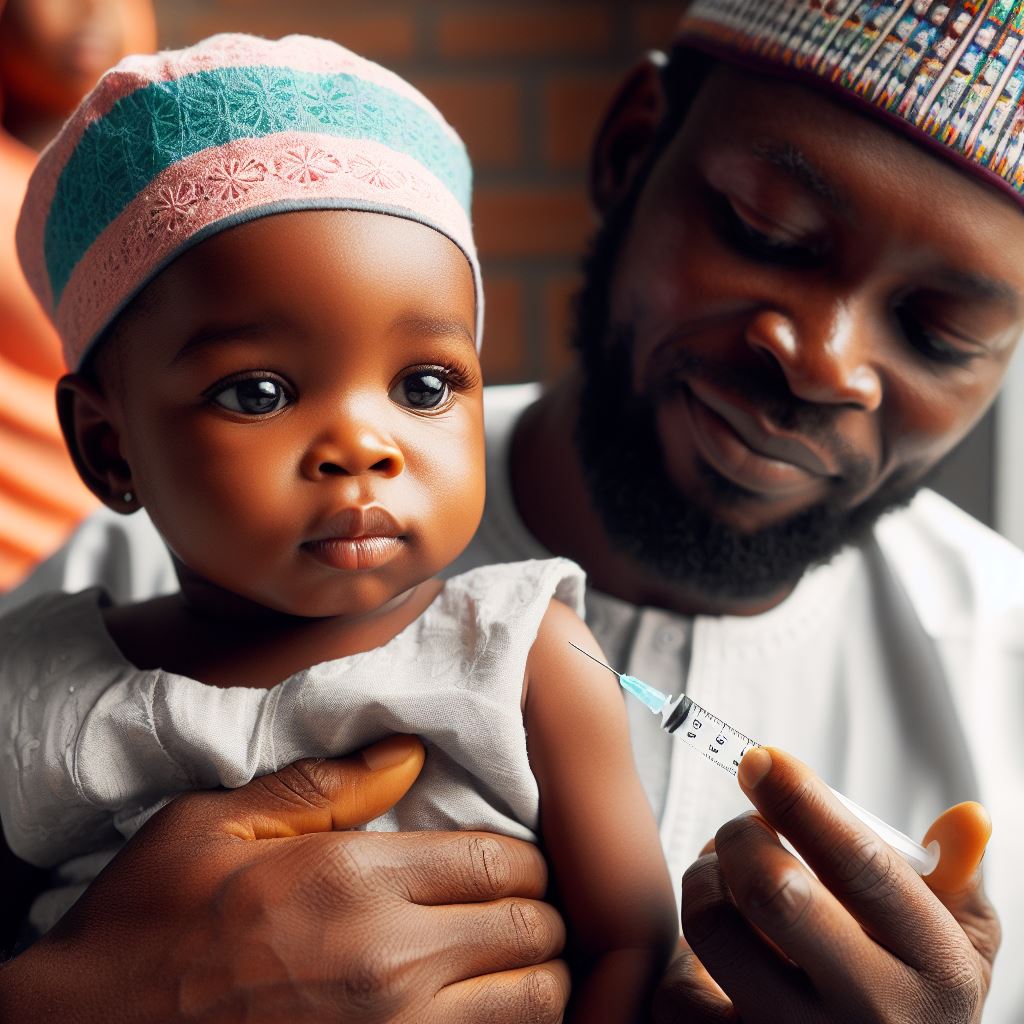Introduction
In this blog post, we will explore Health Check Twin Babies Development.
When it comes to twin babies, their development is an important aspect that needs careful monitoring.
The growth and milestones achieved by these little ones play a vital role in assessing their overall well-being and future prospects.
In this blog post, we aim to shed light on the importance of closely observing the development of twin babies and the purpose behind doing so.
Monitoring the development of twin babies is crucial for various reasons.
Firstly, it allows parents and healthcare providers to identify any potential health concerns or delays in their growth at an early stage.
Early detection can lead to early intervention, ensuring that any developmental issues are addressed promptly.
Furthermore, tracking the development of twin babies can provide valuable insights into their individual strengths and weaknesses.
Each twin may have unique characteristics and developmental patterns, and closely monitoring these can help tailor support and interventions based on their specific needs.
The primary purpose of this blog post is to raise awareness about the significance of monitoring twin babies’ development.
By emphasizing the importance of early detection and intervention, we aim to empower parents and caregivers to actively participate in their twins’ growth journey.
In the following sections, we will discuss key developmental milestones, provide tips for monitoring development, and address common concerns related to twin babies’ growth.
Stay tuned for vital information and guidelines that will help ensure your twin babies are thriving and reaching their full potential.
Read: Balancing Care: Tips for Twin Newborns
Physical Development
Physical development is an essential aspect of a child’s overall growth and well-being.
Parenting Made Just for You
Get personalized Parenting Solutions tailored to your child’s needs. Transform your parenting journey with expert guidance in 1-3 days.
Get StartedTwin babies, like any other infants, go through various milestones and challenges in their physical development.
Understanding these aspects can help parents monitor and support their twin babies’ overall growth.
A. Milestones of physical development in twin babies
A major milestone in physical development for twin babies is gaining weight and growth patterns.
It is important to note that twin babies generally gain weight at a slower rate compared to singleton babies.
This slower weight gain is attributed to the fact that they are sharing nutrients and space in the womb with their twin sibling.
Parents should consult with their pediatrician to ensure the twin babies are gaining weight within the expected range and following appropriate growth patterns.
Motor skills development is another crucial aspect of physical development in twin babies.
This includes milestones such as rolling over, crawling, and eventually walking. Twin babies may reach these motor milestones slightly later than singleton babies.
This delay can be attributed to the fact that they have less space and fewer opportunities for movement during their early development.
However, it is important for parents to provide ample opportunities for their twin babies to explore and practice these motor skills.
B. Challenges in physical development
Twin babies may face specific challenges in their physical development due to their unique circumstances.
Prematurity is a common issue among twins, as they are more likely to be born prematurely compared to singleton babies.
Premature birth can affect the development of organs and muscles, and may lead to delays in physical milestones.
It is crucial for parents to be aware of and address any prematurity-related issues with the guidance of their pediatrician.
Unveil the Perfect Name that Tells Your Family's Story
Let us help you find a name that embodies your family's values, traditions, and dreams. Our personalized consultation weaves cultural insights to create a name that's uniquely yours.
Get StartedAdditionally, twin babies may experience delays or differences in physical development when compared to singleton babies.
This is mainly because twin babies have to share their parents’ attention and resources, which may lead to fewer opportunities for individual attention and stimulation.
It is important for parents to be patient and provide equal opportunities for both twin babies to explore and develop their physical abilities.
C. Monitoring and supporting physical development
Monitoring and supporting the physical development of twin babies is vital for their overall well-being.
Regular check-ups with a pediatrician are key in ensuring that any potential issues or delays are addressed promptly.
Pediatricians can provide guidance on appropriate interventions, exercises, and therapies that can support the physical development of twin babies.
Creating a safe and stimulating environment for movement and exploration is also essential.
Parents should ensure that their home is childproofed and encourage their twin babies to engage in activities that promote gross motor skills.
This can include providing toys and equipment that encourage crawling, walking, and other physical movements.
In addition to this, parents should encourage tummy time for their twin babies.
Tummy time helps strengthen their neck and shoulder muscles and promotes overall physical development.
By providing ample opportunities for movement and exploration, parents can support and enhance the physical development of their twin babies.
Overall, physical development plays a crucial role in the growth and well-being of twin babies.
By understanding the milestones, challenges, and ways to support their physical development, parents can ensure that their twin babies thrive and reach their full potential.
Regular check-ups, a safe environment, and adequate stimulation are essential in helping twin babies achieve their physical milestones.
Read: Nutrition for Twins: Feeding Tips & Tricks
Cognitive Development
Cognitive development in twin babies is an important aspect of their overall growth and should not be overlooked.
As a parent or caregiver of twins, understanding their cognitive milestones, the challenges they may face, and techniques to promote their cognitive development is crucial.
A. Twin babies’ cognitive milestones
- Attention and responsiveness: Twin babies show early signs of cognitive development by becoming more attentive and responsive to their surroundings.
They start to focus on objects and people around them, recognizing familiar faces and voices. - Language development: Language acquisition is a significant cognitive milestone for twin babies. They begin to babble, imitate sounds, and eventually say their first words.
Twins may have their unique language interaction, creating a special bond between them. - Problem-solving skills: Twin babies start developing problem-solving skills as they grow. They learn to manipulate objects, explore their environment, and figure out how things work.
Problem-solving is a cognitive milestone that strengthens their mental abilities.
B. Challenges in cognitive development
- Decreased individual attention from caregivers: Twin babies may face challenges in receiving individual attention from caregivers, as they require double the care and supervision.
This may result in reduced opportunities for one-on-one cognitive stimulation, thereby potentially affecting their cognitive development. - Higher likelihood of language delays: Twins are more likely to experience language delays compared to singletons.
They may have their unique language patterns and develop their own language, which could delay their acquisition of proper language skills.
This highlights the importance of early intervention and speech therapy if necessary.
C. Promoting cognitive development
- Engaging in stimulating activities and playtime: Providing twins with stimulating and age-appropriate activities can enhance their cognitive development.
Engage them in puzzles, building blocks, and interactive toys that encourage problem-solving, creativity, and critical thinking. - Reading and talking to each baby individually: Reading books and having individual conversations with each twin helps develop their language and communication skills.
It provides them with the opportunity to express themselves and learn new vocabulary, enhancing their cognitive abilities. - Encouraging independent exploration and problem-solving: Allowing twins to explore their environment independently and solve problems on their own promotes cognitive development.
Encourage their curiosity and provide them with age-appropriate challenges that stimulate their thinking and problem-solving abilities.
In general, understanding twin babies‘ cognitive milestones, the challenges they may face, and effective methods to promote their cognitive development are vital for their overall growth and future success.
By providing individual attention, engaging in stimulating activities, and promoting independent exploration, caregivers can help twin babies thrive and reach their full cognitive potential.
Read: Twin Milestones: A Nigerian Parent’s Guide

Social and Emotional Development
Social and emotional development is an important aspect of a twin baby’s overall growth and well-being.
During the early years of life, twins go through various milestones in their social and emotional development, which can have both positive and challenging aspects.
A. Twin babies’ social and emotional milestones
- Developing attachment and bonding: Twin babies form a strong attachment and bond with their parents, siblings, and caregivers. They seek comfort, security, and love from their loved ones.
- Recognizing emotions and responding to others: Twin babies start to recognize the emotions of those around them, including their twin sibling. They show empathy and respond to their sibling’s feelings.
B. Challenges in social and emotional development
- Competition and comparison between twins: Twins may experience a sense of competition and comparison, especially if they are constantly compared by others. This can affect their individuality and self-esteem.
- Possible delays in independence and social skills: Due to their close bond, twin babies may rely on each other more than singleton children. This can sometimes result in a delay in developing independence and social skills.
C. Supporting social and emotional development
- Individual bonding time with each twin: It is essential to spend quality one-on-one time with each twin to foster a strong individual bond and cater to their unique needs.
- Encouraging individual interests and friendships: Nurturing each twin’s individual interests and facilitating friendships outside of the twin relationship can help promote their social and emotional growth.
- Promoting cooperative play and positive sibling relationships: Encouraging twins to engage in cooperative play and fostering a positive sibling relationship can enhance their social skills and emotional well-being.
In a nutshell, understanding and supporting social and emotional development in twin babies is crucial for their overall growth and happiness.
By providing individual attention, encouraging individuality, and fostering positive sibling relationships, parents and caregivers can help twins thrive socially and emotionally.
Read: Hygienic Diaper Disposal Methods in Nigeria
Conclusion
A. Importance of Monitoring Twin Babies’ Development
Monitoring the development of twin babies is crucial for their well-being.
Regular assessments enable early identification of potential concerns.
B. Key Points Summary
- Regular Check-ups: Consistent medical check-ups are vital for tracking growth and developmental milestones.
- Individual Attention: Acknowledging each twin’s unique progress helps in identifying any developmental variations.
- Early Intervention: Prompt action upon noticing delays ensures timely interventions and support for optimal development.
- Communication is Key: Open dialogue with healthcare professionals aids in addressing concerns effectively.
- Holistic Approach: Factors like nutrition, social interactions, and motor skills contribute to overall development.
C. Encouragement for Seeking Professional Advice
Parents, your diligence is commendable! Don’t hesitate to consult professionals if you notice anything worrisome about your twins’ development.
It’s natural to have concerns, but remember, seeking guidance isn’t a sign of weakness. Your proactive approach reflects love and dedication.
Trust your instincts. If you feel something might be amiss, professional advice can provide reassurance or necessary guidance.
Healthcare providers specialize in assessing child development. Their expertise and guidance can alleviate worries and offer effective strategies.
The journey of raising twins involves monitoring their growth and development. It’s a shared responsibility between parents and healthcare providers.
Stay vigilant, celebrate milestones, and seek assistance whenever needed. Your commitment ensures the best start for your twins’ flourishing futures.




